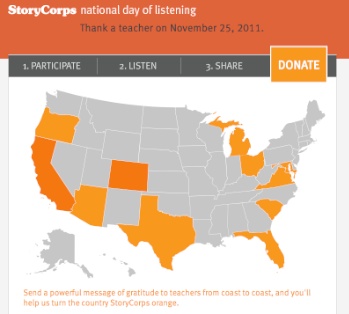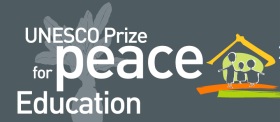Here are a selection of quotes from Nobel Peace Prize winners speaking on the importance of education for peace. From a post at Save the Children.net.
“Education provided must be relevant and of high quality – and should teach students the skills of non-violent conflict resolution and help them develop a vision for a just and peaceful world, a world without war, a world where war has in fact become obsolete.”
Ingeborg Breines, Vice-President
Permanent International Peace Bureau, Nobel Peace Prize, 1910
Giving the children the opportunity to learn, write and rewrite their future with a leitmotif of peace calls for broad-based action – for the seeds of peace to grow in the minds of children, many hands have to plant water and nurture them.
Juan Somavia, Director-General
International Labour Organization, Nobel Peace Prize, 1969
Education is a virtue for many reasons, and is the ver y basis of human progress. It is also among the most powerful tools we have for building sturdy foundations of peace. I commend the invaluable efforts of UN partners such as Save the Children, and welcome efforts to “rewrite the future” and ensure that children and youth throughout the world receive the quality education that is their birthright.
Ban Ki-moon, Secretary-General
United Nations, Nobel Peace Prize 1998 and 2001
A better understanding of each other and a willingness to accommodate inevitable differences through direct communication or mediation can almost always lead to peace. Our children, with their inherent innocence and idealism, can be a driving force in seeking this goal.
President Jimmy Carter
Nobel Peace Prize laureate 2002
The old adage ‘education is easy carried’ is so true. It gives one a sense of dignity, of feeling in control of one’s own life. Lack of education can lead to frustration, anger, violence, a sense of alienation and a society storing up problems for the future, when its citizens feel that their right to a good education, and subsequently, being able to obtain employment and fulfilment, is beyond their reach.
Mairead Maguire
Nobel Peace Prize laureate 1976
We must learn to resolve the conflicts that we have… the discord, the discrimination, the racism, the exclusion. We can’t aspire to peace if we don’t have harmony with others… Our youth are no longer going to be intolerant, racist or discriminatory but who enthusiastically want to be diverse, multicultural, multiethnic, multilingual Guatemalans.
Rigoberta Menchu Tum
Nobel Peace Prize laureate 1992
The twenty-first century, for children neglected, abandoned, humiliated and sacrificed, should bring safety and joy for humankind and the future. As always, achieving this will depend not only on children but on us, on our generous and enthusiastic support, so their future becomes one full of love, of life and of warmth. And of peace – the greatest of victories.
Elie Wiesel
Nobel Peace Prize laureate 1986
The education of war has long traditions, compared to the traditions of peace education… There is an evident need in the whole world to increase both the effort given, as well as the level of ambition regarding, the results of peace education… Focussing only on children in peace education is merely a gesture of our own powerlessness and unwillingness to change our global beliefs. This means developing new ways to cooperate with societies, teachers, adults and parents.
Professor Vappu Taipale, Co-President
International Physicians for the Prevention of Nuclear War, Nobel Peace Prize 1985


 Through its new
Through its new 
